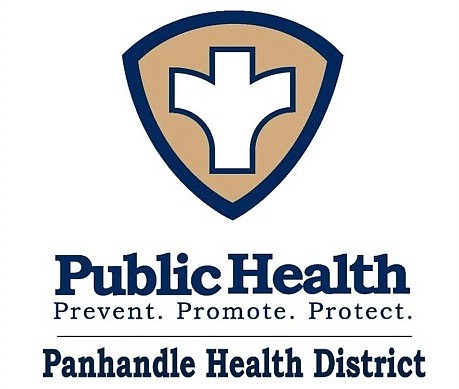PHD encourages vaccination amid increase in Delta variant cases
COVID-19 case counts in Panhandle Health District’s jurisdiction of Kootenai, Bonner, Boundary, Benewah, and Shoshone counties continue to rise, mirroring both the state and national trends.
In late March and early April, PHD’s jurisdiction saw some of the lowest levels of COVID-19 since last year. However, during the month of July, case counts, and percent positivity have been steadily increasing each week.
In early July, PHD was averaging 16 COVID-19 cases per day across all five counties. Moving into the second week of August, that average has risen to 113 cases per day.
Since early July, percent positivity has been increasing, and in counties served by PHD, ranges from 5.26 to 23.44 percent. Levels above five-percent typically indicate that not enough testing is happening in a community and there is more virus circulating than is known.
Idaho Bureau of Laboratories reports an increase in the Delta variant across Idaho among clinical samples tested. On Friday, PHD received the sequencing results of clinical samples submitted for residents in our jurisdiction. Of those sequenced tests, 86% had the Delta variant.
“We can safely assume that there are much more variant cases circulating in our area that have not been sequenced due to constraints the state faces with available laboratories,” said Don Duffy, Interim Director at PHD.
Katherine Hoyer, public information officer for PHD shared that there have been no identified cases of the Delta variant in Boundary County, although that is “most likely is due to the limited amount of sequencing that the state is able to do on COVID tests to sequence for the variant. We expect there is much more variant circulating [...] than has been identified. The state is only able to sequence around 600 samples per week for the entire state.”
“Information on the Delta variant is concerning - with transmission being possible after only a few seconds of exposure for those non-vaccinated and transmission able to occur when someone is in the pre-symptomatic phase,” said Duffy. “These variants will lead many more people to become ill and possibly suffer long-term impacts on their health. Even those vaccinated can contract the Delta variant [and] may not show any symptoms. They can become carriers of the virus to those that are unvaccinated. In these circumstances, being vaccinated doesn’t just benefit you, it’s protecting those around you and their loved ones as well.”
PHD currently sits at 38% of those 12 years and older being fully vaccinated, leaving a large portion of the community vulnerable to COVID-19 and its variants.
Children under the age of 12 are unable to be vaccinated and will soon be going back to school. Many measures throughout the community that were once in place like plexiglass at checkout stands, limited capacities, masking while indoors and even sanitization have relaxed in many cases, or don’t exist.
“The longer we wait to receive the vaccine, the greater opportunity we are allowing the virus to mutate into additional, and potentially more deadly, variants that could cause the current vaccine to be less effective,” said Duffy.
Cases, hospitalizations and deaths in the PHD jurisdiction and Idaho continue to be largely among those who are unvaccinated. According to data from the Idaho Department of Health and Welfare, in Idaho since May 15, 2021:
95.5 percent of COVID-19 cases are among those not fully vaccinated
94.7 percent of people hospitalized for COVID-19 were not fully vaccinated 94.2 percent of people who died from COVID-19 were not fully vaccinated
Though many have returned to pre-pandemic norms, given the Delta variant’s impact and increasing trends, PHD recommends people, regardless of their vaccine status, consider adding back some layers of protection when they are in public settings. Masking, physical distancing and the COVID-19 vaccine are our best defense, and people are encouraged to use these measures, particularly in environments that are heavily populated, vaccine status is unknown and when community transmission levels are considered substantial (50 or more cases per 100,000 people over a 7-day period) or high (over 100 cases per 100,000 people over a 7-day period).
As a reminder, PHD provides recommendations to schools and school districts – it does not and cannot mandate or require schools to follow recommendations. The Idaho Department of Education, independent schools, and school boards make final decisions for schools in Idaho.
PHD will continue posting weekly community transmission levels for schools, businesses, and the community to remain aware of the pandemic situation in our area. View community transmission levels by county at: https://panhandlehealthdistrict.org/covid-19/.
If you have questions about COVID-19 in our area, call PHD’s COVID-19 hotline 877-415-5225. Hotline hours of operation are Monday through Friday, 9 a.m. to 12 p.m. and 1 p.m. to 4 p.m.

